India News
Demonetisation is an “also-ran” measure: RBI
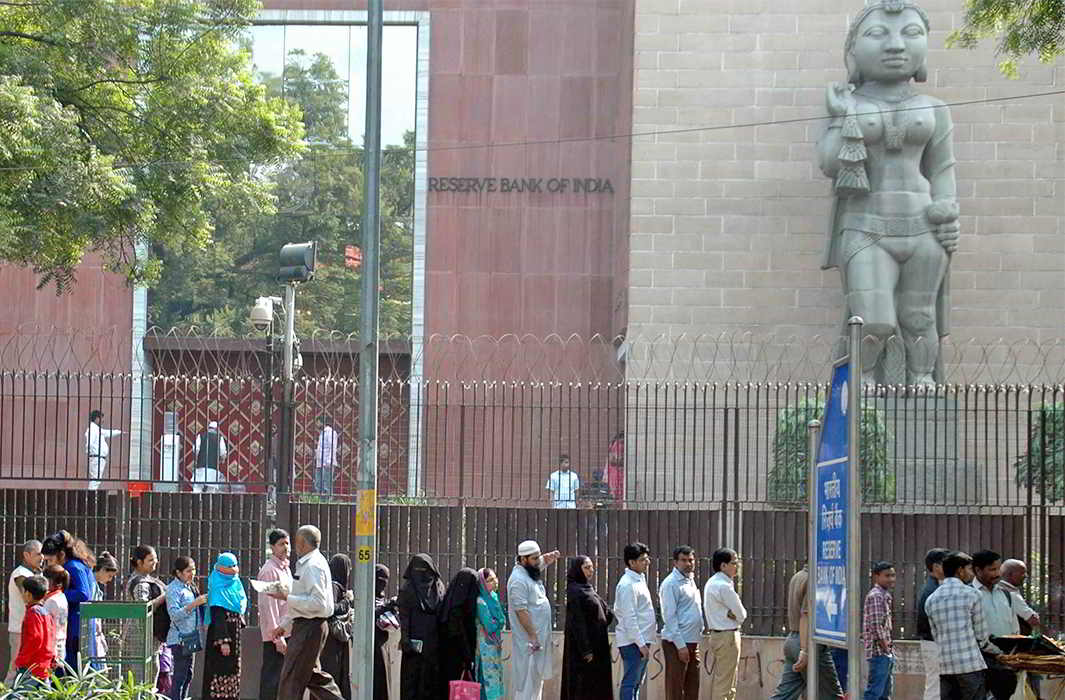
[vc_row][vc_column][vc_column_text]For the central bank, GST, insolvency and benami laws are more substantial moves to check black money[/vc_column_text][vc_column_text]By Parsa Venkateshwar Rao Jr
The Reserve Bank of India (RBI) in its half-yearly Financial Stability Report (FSR), released on December 29, 2016, has surprisingly moved the demonetization drive of the Modi government to one of the many initiatives. It is not at the top of the list though it has dominated public debate on the streets and in the media.
The central bank listed the bankruptcy law and the Goods and Service Tax (GST) as the two most important factors which would influence the performance of the economy. On demonetisation, the RBI said: “Other initiatives such as the withdrawal of legal tender status of specified bank notes (SBNs) could potentially transform the domestic economy.”
It would appear that Prime Minister Narendra Modi, Finance Minister Arun Jaitley and other ministers and BJP spokespersons would not trumpet demonetisation as the most important decision of the two-and-a-half-year-old BJP-led NDA government.
The RBI has noted several measures taken by the government to tackle the challenge of black money: “…the government’s resolve to take on the shadow economy through various measures are expected to deliver net direct and collateral benefits to the economy in the long run, and will also improve India’s international standing. Such measures include, among others, the income disclosure scheme, setting up of a Special Investigation Team (SIT), enacting a law regarding undisclosed foreign income and assets, amending the Double Taxation Avoidance Agreement between India and Mauritius and India and Cyprus, reaching an understanding with Switzerland for getting information on bank accounts held by Indians and amending the Benami Transactions Act. Further, the initiatives for encouraging the use of non-cash and digital payments and withdrawal of legal tender status of specified bank notes (SBNs), accompanied by changes in income tax rules are expected to result in a shift away from the significant dependence of Indian economy on cash-based transactions….”
It is evident that the government’s boast and its attempt to spread the message that demonetisation was a bold and firm response to tackle black money and the “shadow economy” does not find favour with the central bank. It does not seem to consider demonetisation as the radical move that the Prime Minister and his colleagues have tried to project it as.
Addressing the issue of “shadow economy”, the FSR notes that it is a worldwide phenomenon and that it is difficult to define it in precise terms. It says, “The term shadow economy may refer to black economy or black money. There is no uniform definition of black money in economic theory and various other terms such as ‘unaccounted income’, ‘black income’, ‘dirty money’, ‘black wealth’, ‘underground wealth’, ‘black economy’, ‘parallel economy’ are also used in this regard. In the Indian context, the White Paper on Black Money, released by Department of Revenue, Ministry of Finance in 2002 adopted a definition of black money “as assets or resources that have neither been reported to the public authorities at the time of their generation nor disclosed at any point of time during their possession.”
And it notes, “In recent literature and usage, shadow economy is also referred to as System D. Though estimating the size of the shadow economy is challenging, according to the Organisation for Economic Co-operation and Development (OECD) half of the world’s workers were employed in the shadow economy in 2009 (this number is likely to grow to two-thirds by 2020).”
Compared to the populist twist that the government sought to give and make it appear that demonetisation was the magic wand that would conjure away black money, the FSR lays bare the complexity of the problem. It explains in clear language the connection between shadow economy, employment and tax rates. It says, “One of the many problems with the shadow economy is that it renders official statistics unreliable and severely impacts policy formulations by governments. Besides, the loss of tax revenues may force governments to hike tax rates, which in turn may further encourage greater activity in the shadow economy. As per some analyses, in the US a 1 percentage point increase in personal income tax rates, other things being equal, tends to increase the size of the shadow economy by 1.4 percentage points. Similarly, a 1 point increase in a regulation index (ranging from 1 to 5) corresponds to a 10 per cent increase in the shadow economy. There is also evidence in some economies of dynamic mobility between the official and shadow economies depending on the relative ‘net’ wage levels; this in turn is an indication of the influence of tax rates and rigidities in labour markets on the size of the official versus shadow economies.”
And it gives its clear view as to the best way of tackling shadow economy, black money et al, and it does not suggest even in an oblique manner that demonetization is the solution, or even that it is one of the solutions. It says, “While the impact of the shadow economy on direct tax revenues is a concern, its role in contributing to indirect taxes and economic growth is debatable. The best way to contain the shadow economy is to improve governance and quality of public services, avoid excessive regulations, impose stringent penalties and have a compatible tax structure.”[/vc_column_text][/vc_column][/vc_row]
India News
Arvind Kejriwal given insulin in Tihar jail after sugar levels touch 320
Finally, the BJP and its jail administration came to their senses and gave insulin to CM Arvind Kejriwal in jail, AAP tweeted.
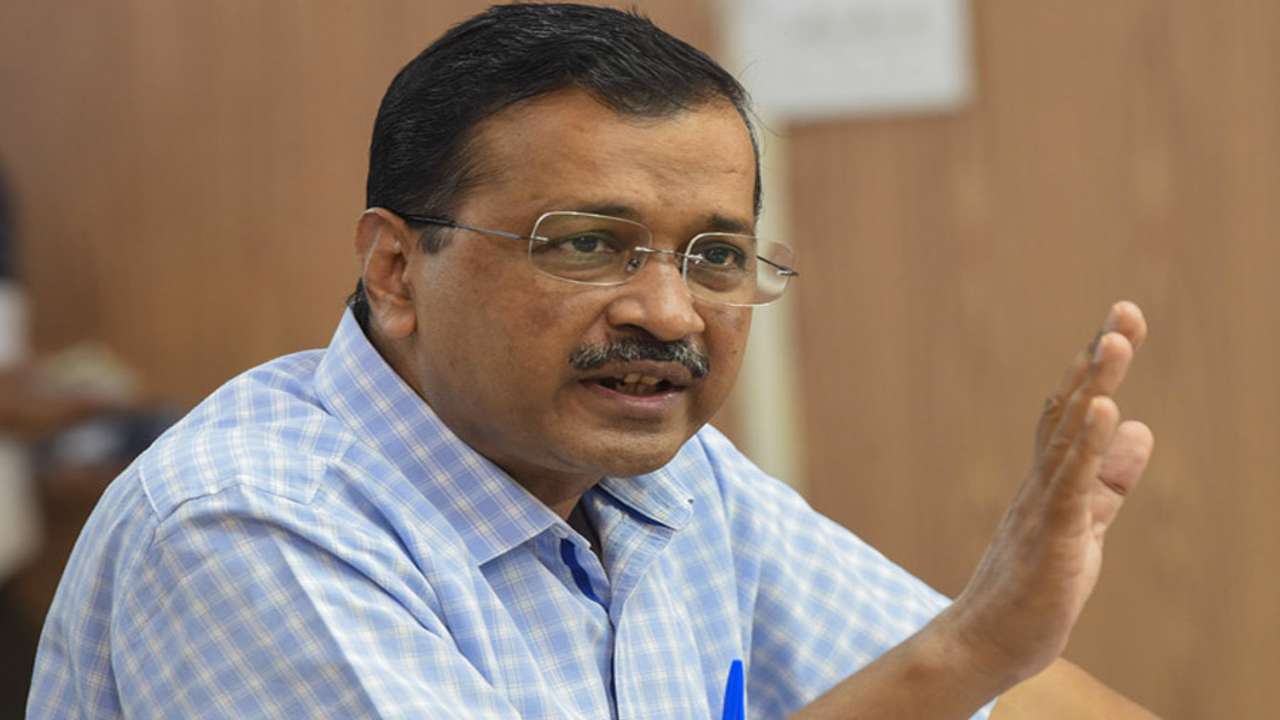
Delhi Chief Minister Arvind Kejriwal received insulin on Tuesday, April 23, after days of battling, according to the Aam Aadmi Party.
Arvind Kejriwal, however, received a low dose of insulin, according to Tihar jail officials, following a rise in his blood sugar. Around 7:00 p.m., his blood sugar level was found to be 217, and the medical staff at Tihar who were attending to him then made the decision to give him insulin, according to an official.
Taking to social media X, formerly Twitter, AAP tweeted, CM Arvind Kejriwal received insulin in jail after the BJP and its jail administration finally had a change of heart. CM Kejriwal’s blood sugar level was 320. Only the graces of Lord Hanuman and the perseverance of the Delhi community have made this possible. The AAP announced in a tweet on X that they have succeeded in delivering insulin to our Chief Minister.
According to the Tihar official, Kejriwal was given two units of low dose insulin on Monday evening on the advice of AIIMS doctors.
Low-dose insulin was given to Delhi Chief Minister Arvind Kejriwal at Tihar Jail yesterday. Yesterday, his sugar levels were 217. When the level surpasses 200, the AIIMS experts had stated that he could receive low-dose insulin, according to a Tihar Jail official.
He said Tihar’s doctors had been informed by AIIMS specialists in a video conference with the chief minister on April 20 that insulin could be given to him if his blood sugar level exceeded a specific threshold.
The incident took place just one day after a Delhi court ordered the AIIMS to set up a medical board to evaluate Arvind Kejriwal in order to determine whether or not he requires insulin to regulate his blood sugar levels. The court further said that the food prepared at home by the AAP national convenor differs from the diet plan prescribed by his doctor.
The order was issued by special judge Kaveri Baweja for CBI and ED cases, who turned down Arvind Kejriwal’s request for a video consultation with his doctor in front of his wife Sunita Kejriwal.
Delhi health minister Saurabh Bharadwaj said on Monday that Arvind Kejriwal has been detained in Tihar for almost 22 days. He has been complaining for several days that his blood sugar is rising and that the jail does not have a diabetes specialist. He has been requesting insulin. It is evident from the court’s ruling today that Tihar jail does not have a diabetes specialist.
Since insulin is the only option available to control his blood sugar levels, Arvind Kejriwal has been requesting it nonstop for the past ten days, according to AAP leader Atishi.
The Enforcement Directorate (ED) arrested Arvind Kejriwal on March 21 in relation to a money-laundering investigation involving the Delhi government’s now-scrapped excise policy. The CM has been logged in Tihar jail since April 1.
India News
Lok Sabha elections: BJP candidate Mukesh Dalal wins from Surat after opponents remain out of fray
BJP’s Surat Lok Sabha candidate Mukesh Dalal has won the seat unopposed
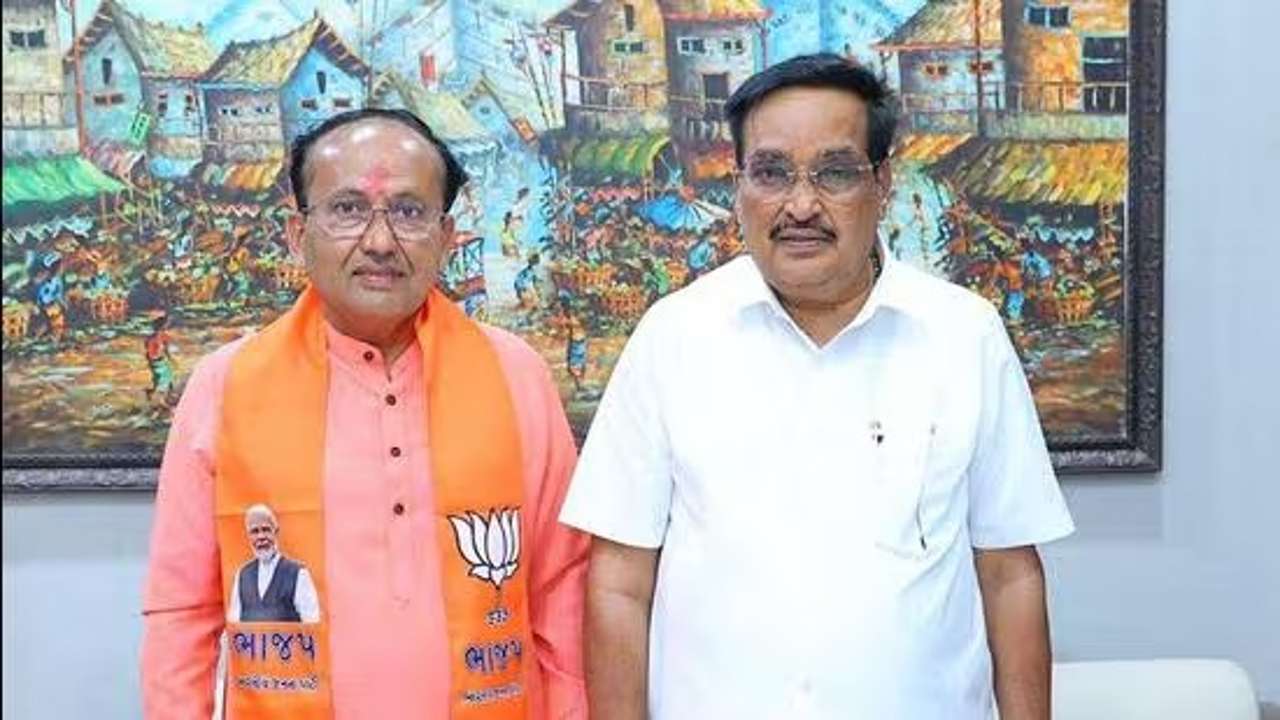
Bharatiya Janata Party (BJP) candidate Mukesh Dalal is elected unopposed from Gujarat’s Surat Lok Sabha constituency after all other contenders withdrew their candidature.
Gujrat BJP chief CR Paatil took to hi social media account X, formerly Twitter, and congratulated Dalal for being elected unopposed.
This latest developmnet comes after the cancellation of two Congress candidates’ nominations on Sunday and the withdrawal of eight more on Monday.
The Congress candidate for the Surat Lok Sabha constituency, Nilesh Kumbhani, had his nomination form canceled since he was unable to produce even one of his three proposers before the election commissioner.
The differences in three proposers’ signatures on Kumbhani’s nomination form had drawn scrutiny from the BJP.
The Congress’s replacement candidate from Surat, Suresh Padsala, had his nomination form nullified as well, which eliminated the party from the race in the city.
Returning Officer Sourabh Pardhi issued an order stating that the four nomination forms that Kumbhani and Padsala had presented were refused because there were initially found differences in the proposers’ signatures, making them seem fake.
Pardhi’s order also mentioned that the proposers acknowledged having signed the forms themselves in their affidavits. It should be noted that Kumbhani’s three proposers were related to him.
Nilesh Kumbhani was given a day by the Returning Officer to submit his response following the proposers’ claim. The congressional candidate arrived at the polling place with his representative; however, none of his three proposers showed up.
According to the order, the Congress candidate’s attorney had requested that the camera tape be checked, and even their presence was not discovered.
Meanwhile, the Congress said that everyone was afraid of the government’s threat and accused the ruling BJP of being involved in dirty play.
Congress leader and activist Babu Mangukiya said that Kumbhani’s three proposers had been abducted, and he suggested that the Returning Officer look into this matter rather than the validity of the signed form.
According to Mangukiya, it was improper to cancel the form without first telechecking the signatures and determining whether or not the proposers’ signatures were accurate.
India News
Arvind Kejriwal writes letter to Tihar Jail officials, asks for insulin daily
Delhi Chief Minister Arvind Kejriwal, jailed in the now-scrapped liquor policy case, said he had been requesting insulin daily due to high blood sugar levels
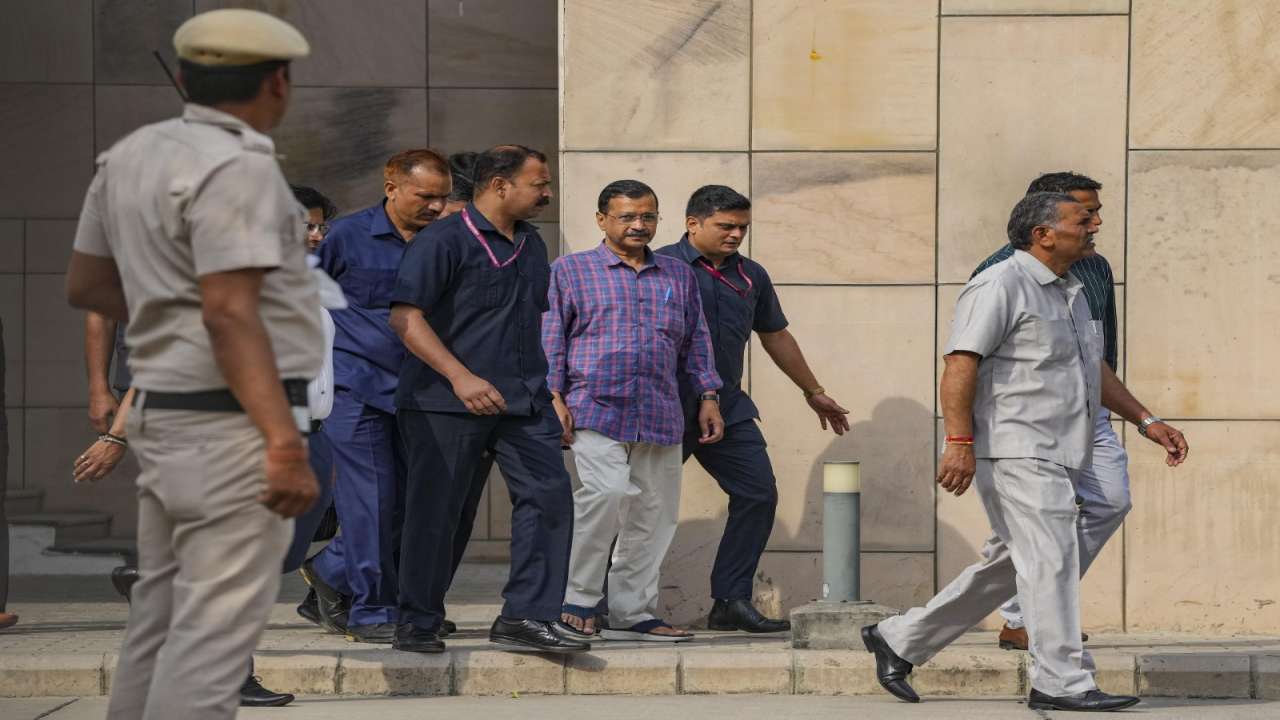
Delhi Chief Minister Arvind Kejriwal, who is a diabetic patient who filed a legal action alleging that Tihar Jail staff denied him the supply of insulin for 31 days, has taken aim at the jail administration, charging them with alse statements and lying under political pressure (from the ruling Bharatiya Janata Party).
According to sources, the Aam Aadmi Party chief, who is arrest by the Enforcement Directorate on March 21 in connection with an alleged Delhi liquor policy scam, wrote a letter to the superintendent of Tihar Jail after the jail set up a video conference with medical professionals from the All India Institute of Medical Sciences (AIIMS), which is run by the central government. Jail officials said that the insulin supply had not been increased following the discussion.
The doctors assured Kejriwal that there is no serious concern, and they suggested him to continue with the prescribed medicines, which will be evaluated regularly, according to jail officials.
Kejriwal, however, views the situation differently.
The Delhi CM mentioned in his letter, that he read the Tihar administration’s statement in the press. After reading the statements, he was sad. In his letter, Kejriwal said, Tihar Jail’s two claims are false. He requests insulin every day. He told the jail authority that sugar levels are high after displaying the glucometer readings to them three times a day, he added.
He continued saying that the values for sugar levels are between 250 and 320 mg/dl, and that he demandeds insulin almost every day. Then how the jail officials are claiming that he never brought up the topic of insulin?, the AAP leader said.
Kejriwal also mentioned the data of World Health Organization (WHO) which says, the expected values for normal fasting blood glucose concentration are between 70 and 100 mg/dL (or milligrams per decilitre).
AIIMS doctors never said there is nothing to worry about. They said they will respond after looking at the (medical) data and (patient) history, added the chief minister.
He is believed to have told the jail chief, the Tihar administration is lying under political pressure,in an effort to increase hostilities with the Centre, which he has accused of having a political vendetta, in the run-up to the May 25 Lok Sabha election in the national capital.
-

 Entertainment20 hours ago
Entertainment20 hours agoRanveer Singh files FIR in viral Deepfake video case
-

 Entertainment23 hours ago
Entertainment23 hours agoKalki 2898 AD: Amitabh Bachchan’s first look as Ashwatthama unveiled, internet heaps praise
-
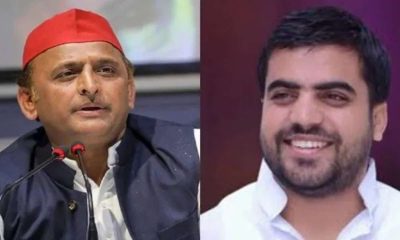
 2024 Lok Sabha Elections17 hours ago
2024 Lok Sabha Elections17 hours agoSamajwadi Party fields Lalu Yadav’s son-in-law Tej Pratap from Kannauj
-
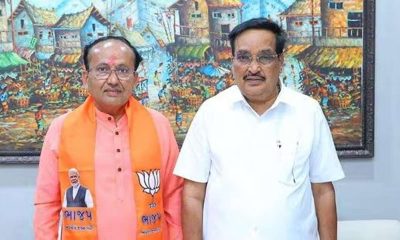
 India News18 hours ago
India News18 hours agoLok Sabha elections: BJP candidate Mukesh Dalal wins from Surat after opponents remain out of fray
-
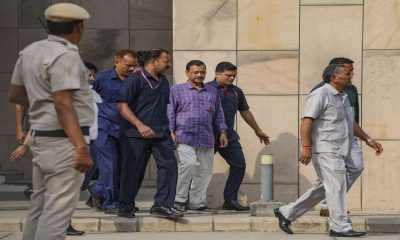
 India News20 hours ago
India News20 hours agoArvind Kejriwal writes letter to Tihar Jail officials, asks for insulin daily
-
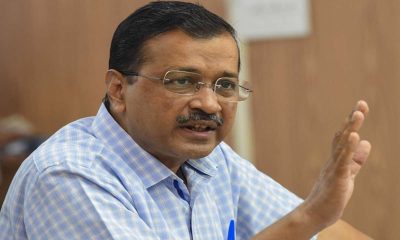
 India News39 mins ago
India News39 mins agoArvind Kejriwal given insulin in Tihar jail after sugar levels touch 320
-

 Cricket news32 mins ago
Cricket news32 mins agoIPL 2024: Yashasvi Jaiswal hits brilliant century to help Rajasthan Royals beat Mumbai Indians by 9 wickets

